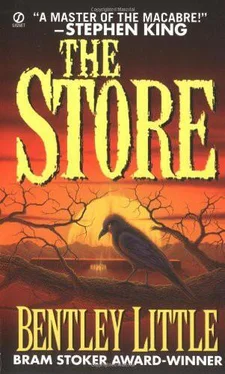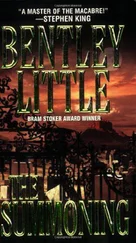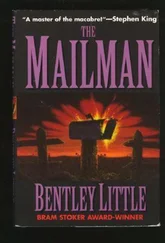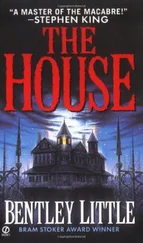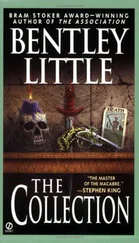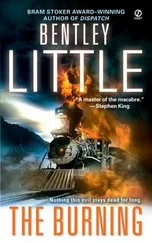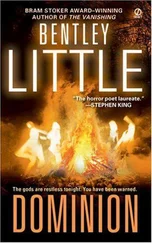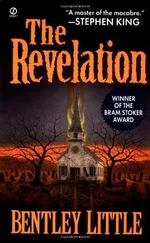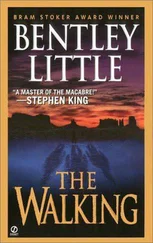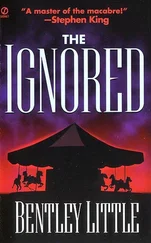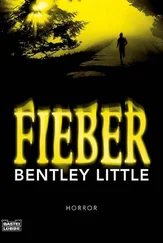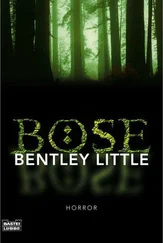"That is correct."
"I thought The Store backed up to national forest land."
"It does," Carpenter agreed. "But as part of the federal land exchange program, we traded forty acres of BLM-surrounded land we owned by Castle Creek for sixty acres adjacent to The Store's property."
"And now we're going to sell it to The Store?"
"No. In exchange for The Store's generous offer to provide park maintenance and to take over funding and organizing of the youth recreation programs, the town plans to donate the land to The Store corporation."
"This is outrageous!" Bill glanced around the room, looking for support.
Ben was furiously writing in his notebook. The other two people in the audience were staring blankly at him. He once again faced the commissioners. "You mean to tell me that Juniper is deliberately helping The Store at the expense of Jed McGill and then telling Jed that he should lower his prices if he hopes to stay in business?"
"Not at all," Carpenter said.
"But you're giving The Store free land, you're going to rezone its property, and like Leander said, there're going to be no repercussions for keeping their plan secret and not telling you their intentions in the first place. Jed's been an honest local storeowner here for . . . for as long as I've lived in town, which is longer than most of you, and now you're going to give him the shaft."
Carpenter smiled indulgently. "Is there any valid point you wish to make, Mr. Davis? What specific legal objections do you have to the rezoning plan?"
"I don't think The Store should be given special privileges."
"The Store is threatening to leave Juniper --"
"Like Leander said, let them."
" -- and The Store is our town's major employer. You are reacting out of personal bias, Mr. Davis. It is our job to examine our building codes and zoning ordinances and determine from that what is in the best interests of the entire town, not just a few specific individuals." He nodded at Bill. "Your time is up, Mr. Davis. Thank you for your input." He glanced around at his fellow commissioners. "Gentlemen, I suggest we put it to a vote."
By a vote of four to one, the Planning Commission agreed to rezone The Store's property to allow grocery sales.
"Big surprise," Ben said on the way out.
"I see an editorial here," Bill told him.
"There will be. But you know how well my editorials go over. People threaten to kick my ass and cancel their subscription." He grinned. "Luckily, we have a monopoly here."
"Have Laura write it."
"She's more popular than me?"
"Isn't she?"
"Yeah, but I hate to hear it."
"What about Newtin?"
"What about him?"
"He's not making you kiss The Store's ass anymore?"
"I think that still is our official policy, but I haven't been following it lately. And I think as long as the ad space keeps selling, he doesn't really give a damn what's in the articles."
Bill drove his friend home. "Doesn't all this just piss you off?" he asked as the editor got out of the Jeep.
"It not only pisses me off, it scares me," Ben said. He started up the path to his trailer. "Later!" he called, waving.
"Later."
Bill drove off.
_It scares me_.
It scared him, too, and he turned on the Jeep's radio so he'd have noise instead of silence on the dark trip home.
In his dream, The Store was expanding its parking lot so that it covered the entire town. The forest was gone, the mountains and hills were bare, and there was not enough asphalt to pave over the cleared land, so an asphalt-maker, a machine that looked like an oversized thresher, was inching forward at the edge of the parking lot, a relay-line of uniformed Store employees passing forward the bodies of townspeople, throwing them into an open scoop on the machine, as a mixture of powdered bones and tar was excreted from a series of nozzles at its rear. He was standing on the highway, watching, horrified, when he saw Ginny being passed froward, the girls following her. Sam was still wearing her Store uniform, but that had not exempted her from her fate, and she was handed from one employee to another, toward the open mouth of the asphalt maker.
Bill started running across the parking lot, toward the machine, but his feet became stuck on the gluey pavement.
Ginny was thrown into the scoop.
Shannon.
Sam.
Black bone-based asphalt emerged from the rear nozzles.
"No!" he cried.
And the machine continued on.
3
Jed McGill was awakened by the doorbell.
He sat up, then stumbled out of bed, aware that the doorbell had been ringing for a while but not sure for how long. The sound had been incorporated into his dream, and reality sounded like an echo to him as he groggily reached for his bathrobe. He glanced at the clock on his dresser.
Two a.m.
Who would be coming over at this hour?
_Ring_.
Yawning, his eyes still half-closed, he felt his way around the doorjamb, using the wall as his guide as he moved through the hallway toward the living room. _Ring_.
He rubbed his eyes, opening them wider. There was something about the unhurried insistence of the ringer and the even intervals between the door chimes that set off his radar. Even in this sleep-numbed state, he recognized that whoever was outside had been there for quite some time, waiting far longer than any ordinary person would have, and was still at the door, patiently pressing the button every thirty seconds.
_Ring_.
He approached the door warily, feeling oddly nervous. Juniper wasn't exactly New York, with psychos and criminals and gangs prowling around at all hours of the night. And he wasn't a ninety-eight-pound weakling. He was six three, two hundred pounds, and he pumped iron. He was in good physical shape.
Still, he felt apprehensive, almost jumpy, as his hand touched the door handle. It was probably just someone whose car had broken down, someone wanting to use his telephone to call for a tow. He leaned against the door, peeked through the peephole.
It was a man in a three-piece suit.
That should have settled his nerves. It was not a thug or a loony but a businessman. For some reason, however, seeing his visitor made Jed even more uneasy. Why would a businessman be standing on his stoop and ringing the doorbell in the middle of the night? It made no sense. The man didn't look harried enough or annoyed enough for his car to have broken down, so that theory went out the window. But if he was here to talk business, it could have waited until morning. And he should have called first.
Something about this didn't feel right.
The man calmly pressed the button next to the door.
_Ring_.
Jed threw the dead bolt, unlocked the door, opened it. The man stood on the stoop, smiling at him, and Jed didn't like that smile.
"Hello, Mr. McGill."
Jed stared at him dumbly.
The man pushed past him, uninvited, into the living room. "Nice place you've got here."
Get out, he wanted to say. Get out of my house. But he only turned and watched as the man maneuvered around the couch and the coffee table and sat down in the easy chair facing the television. The man was still smiling as he motioned for Jed to sit on the couch, and now Jed knew what he did not like about the smile. It was fake, yes, but that's not what unnerved him so. It was the hint of a threat behind the smile, the belligerence backing it.
He should not have opened the door, he realized. Whatever was going to happen was going to happen. It was too late to stop it.
Whatever was going to happen?
He looked at the smiling business-suited man on the couch.
Yes.
He wished he'd brought his shotgun out with him, but it was still in the bedroom, leaning in the corner by the dresser. His rifles were in the gun case.
Читать дальше
